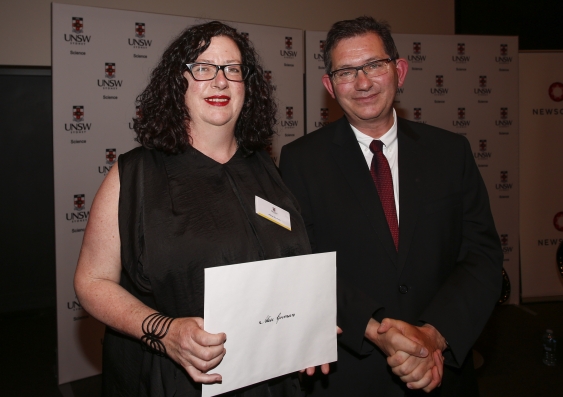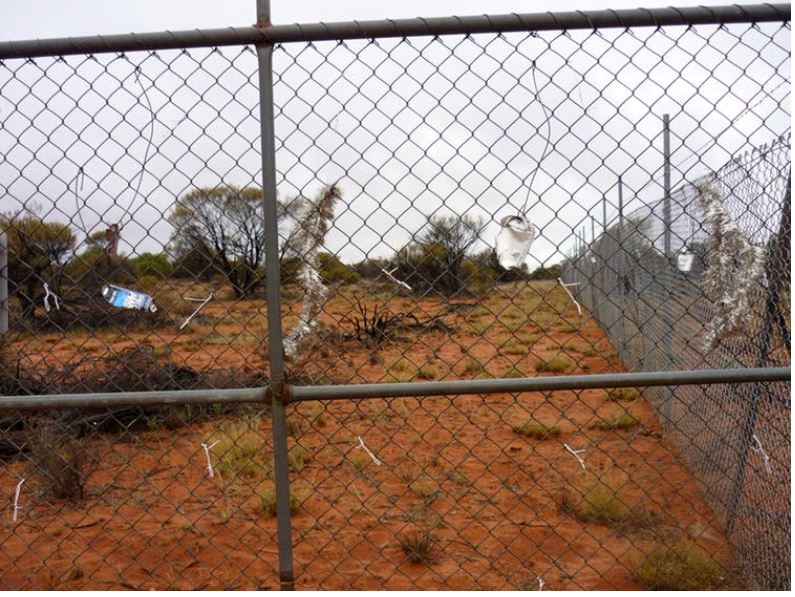
A story linking the ancient and modern story of Woomera and the Nullabor Plain has won a national award for Flinders space and Indigenous archaeology expert Dr Alice Gorman.
Dr Gorman this week won the 2017 Bragg UNSW Press Prize for Science Writing for her essay, entitled Trace Fossils: The Silence of Ediacara, the Shadow of Uranium, which was first published earlier this year in a special South Australian issue of the Griffith Review entitled State of Hope (Issue 55).
The story explains the significance of trace fossils and history of the remote areas around Woomera and the Nullarbor used as a nuclear weapons test site. It also explores the issues of climate change, the space race, nuclear war and Indigenous repression, while also focusing on the 600-million-year-old fossils from the Ediacaran period in this region.
Dr Gorman’s win, celebrating science written for a general audience, comprises a $7,000 cash prize and publication of her story in the anthology The Best Australian Science Writing 2017.
The seventh edition of Best Australian Science Writing in an acclaimed series of anthologies published by NewSouth Books, which contain short non-fiction pieces of writing about science for a general audience.

Internationally acclaimed science writer, artist and curator Margaret Wertheim launched the latest anthology at the University of NSW awards and was also presented with the UNSW Scientia Medal for Science Communication by the university’s Dean of Science, Professor Emma Johnston.
At the awards, Ms Wertheim said science communication played two important roles: to celebrate science as conceptual enchantment, and to interrogate science as a social practice.
She said science writers in general tend to be an “endangered species” due to diminishing support for their practice.
This was a great concern, adding: “Science communication is an area which is performing an absolutely vital function in our society.”
Runners-up prizes of $1,500 each were awarded to Jo Chandler for her article on climate change and coral bleaching, Grave Barrier Reef, and to Elmo Keep for her article on nuclear proliferation, The Pyramid at the end of the world.
Dr Gorman, who tweets as @drspacejunk, is an internationally recognised leader in the emerging field of space archaeology, and her research on space exploration has been featured in The New Yorker, National Geographic, Monocle and Archaeology magazine.
She also works extensively in Indigenous heritage management, providing advice for mining industry, urban development, government departments, local councils and native title groups.
Dr Gorman, who recently spoke at the first ever United Nations Expert Panel on Women in Space in New York on October 4-6, also was a key player in Adelaide hosting the International Astronautical Congress – the biggest congress ever with 4, 470 delegates and $24 million to local business.
At the congress, she supported an art installation in collaboration with experimental philosopher Jonathon Keats.
The Cosmic Welcome Mat, displayed both at the Adelaide Convention Centre and Flinders Bedford Park campus, was also part of a panel discussion at the STATE Festival in Los Angeles which Dr Gorman also attended on October 11.
Dr Gorman also contributed to the research and lengthy negotiations that led to the September announcement that Australia would have a space agency.
“It’s been a very busy year,” Dr Gorman says, while already making plans for 2018.
“I want to write something on lunar shadows, maybe a ‘New Poetics of Space’ based on Gaston Bachelard’s famous work,” she says.
“Haunted space stations and space suits is another idea which is floating in my head.”
The Griffith Review essay has also appeared in The Conversation.

